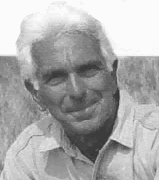 Within the last seven days two people that I know have passed on. One was my aunt's husband who was only 61. He had a heart attack and died in my aunt's arms praying and trusting God. Just before he died he said, "God has always taken care of me, and I believe He is going to keep on taking care of me." He died early in the morning on Christmas Eve.
Within the last seven days two people that I know have passed on. One was my aunt's husband who was only 61. He had a heart attack and died in my aunt's arms praying and trusting God. Just before he died he said, "God has always taken care of me, and I believe He is going to keep on taking care of me." He died early in the morning on Christmas Eve.The second person was a young man who was only 20 years old. He died of cancer. He was the only son of his parents and they, along with many other people, were praying for and believing for a miraculous healing. Still, this young man died early this past Sunday morning. It has been a devastating blow to his family.
Death is difficult. It challenges everything we think we know about God, about how He operates, about faith, and about love. The question of "why" inevitably permeates our very soul. Why my son? Why so young? Why at Christmas? Why not me instead of him? Why?
When my sister lost her second child to SIDS, that was the first question she asked me when I saw her. I was only 15-years-old at the time and when I walked into the room where she was surrounded by women from the community, she stood up and embraced me weeping. She asked, "Why did God take my baby? I loved and cared for her. Why did He take my baby?"
As a punk teenager I had no answer for her. But now, 32 years later with a master of divinity and a doctor of ministry degree under my belt I can confidently answer her question: "I don't know."
The point, I think, is to hold on tighter to what we do know. We know that God is love, and that He loves us even when He doesn't make sense to us. He doesn't kill babies, but certainly in His sovereign will He had to allow for the baby to pass away, for the young 20-year-old and the 61-year-old to die within days of Christmas. I don't know why, but even if we knew why, would it make it any less painful? The key, I think, is to refuse to allow the "why" to consume us. Instead, we need to cling more tenaciously to what we do know. I know that God loves my sister, my aunt, and my friend who lost her only son.
Nothing that life brings our way can diminish God's love for us. We may not understand it here and now. We look through a dark glass and see only shapes and shadows, but one day we will know even as we are known, and then and there, as we finally understand the plan of God, the "why" will no longer matter. God will wipe away that last tear as we have eternity to get to know and love one another--that husband, that young son, that infant daughter. Until then, we rest our hope and faith on the fact of God's unchanging love and wisdom. His thoughts are highter than our thoughts and He knows what He's doing, even when we don't.









